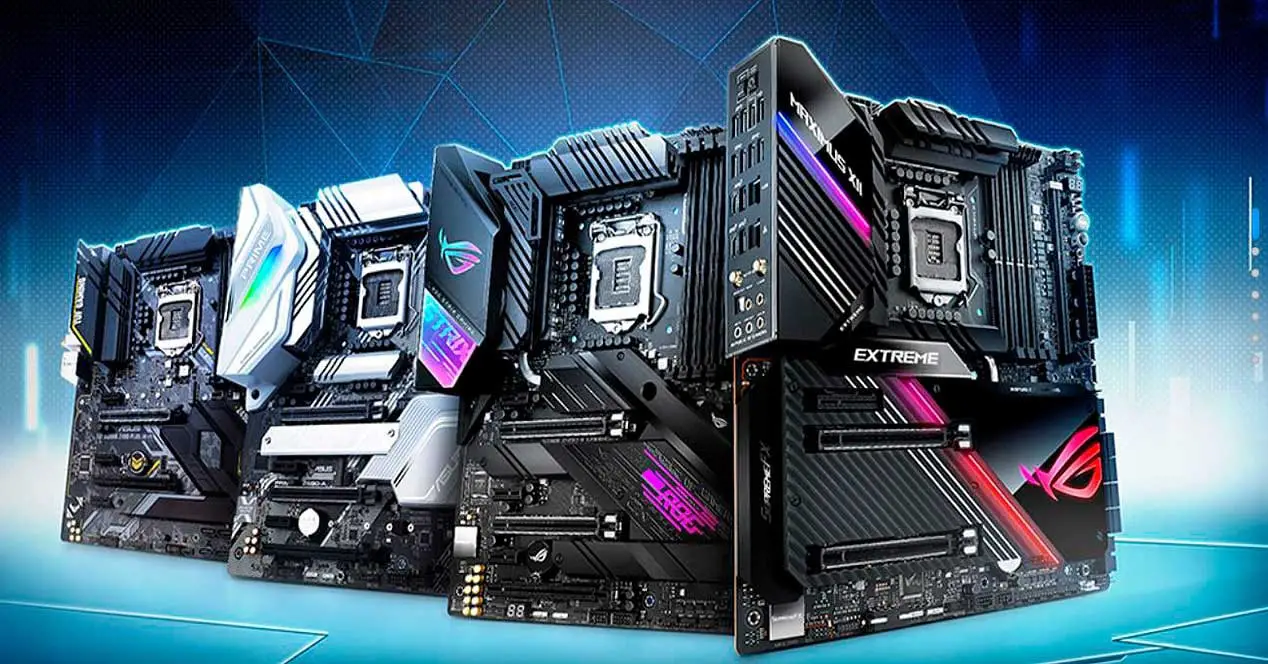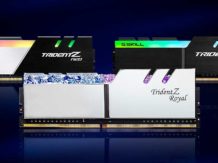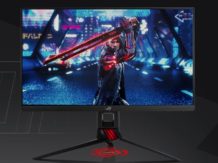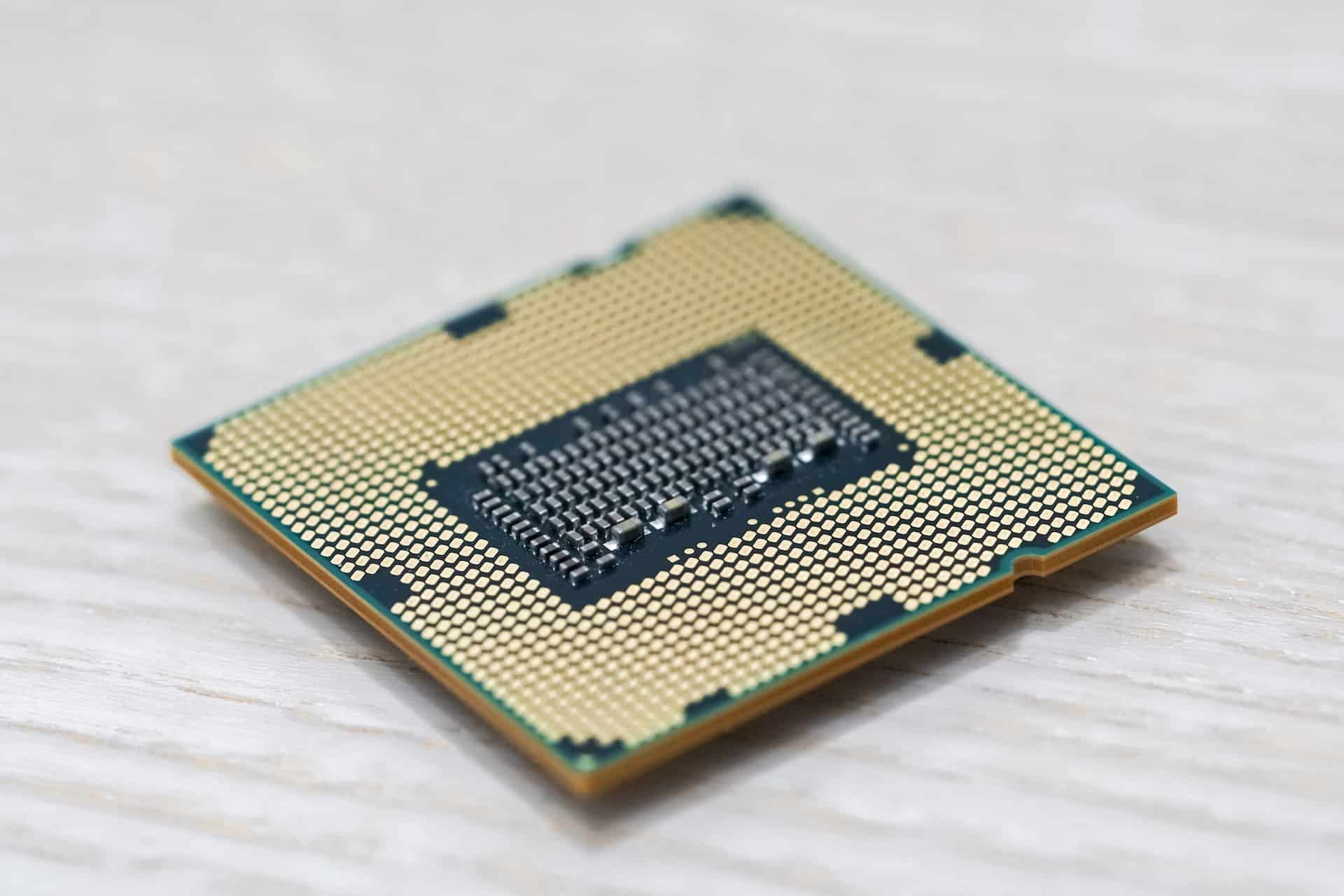For now, all they know is that they have started testing their motherboards to bypass the design limitation that prevents the technology from being implemented. The data provided by ASUS reveals that they have achieved a clock jitter less than or equal to 0.5 ps RMS on many of their motherboards, though not all. This jitter is a delay fluctuation and is an unwanted noise signal, so it is essential that this value is as low as possible, although initial tests provide quite good numbers.
ASUS begins to get wet with PCIe 4.0 support on its Z490 boards
Compared to other brands, which from the beginning have opted to announce support for PCIe 4.0 by heart, ASUS has not followed the same strategy covering its backs in case of failure in its attempt to offer functionality that Intel processors 10th generation core does not natively support.
The company has already issued a statement at the time stating that since the Intel Core processors and the tenth-generation Z490 chipset are not PCIe 4.0 compliant, and that there is currently no processor available that could be verified stability, partial or full support of PCIe 4.0 would not be used as an advertising claim on your part.
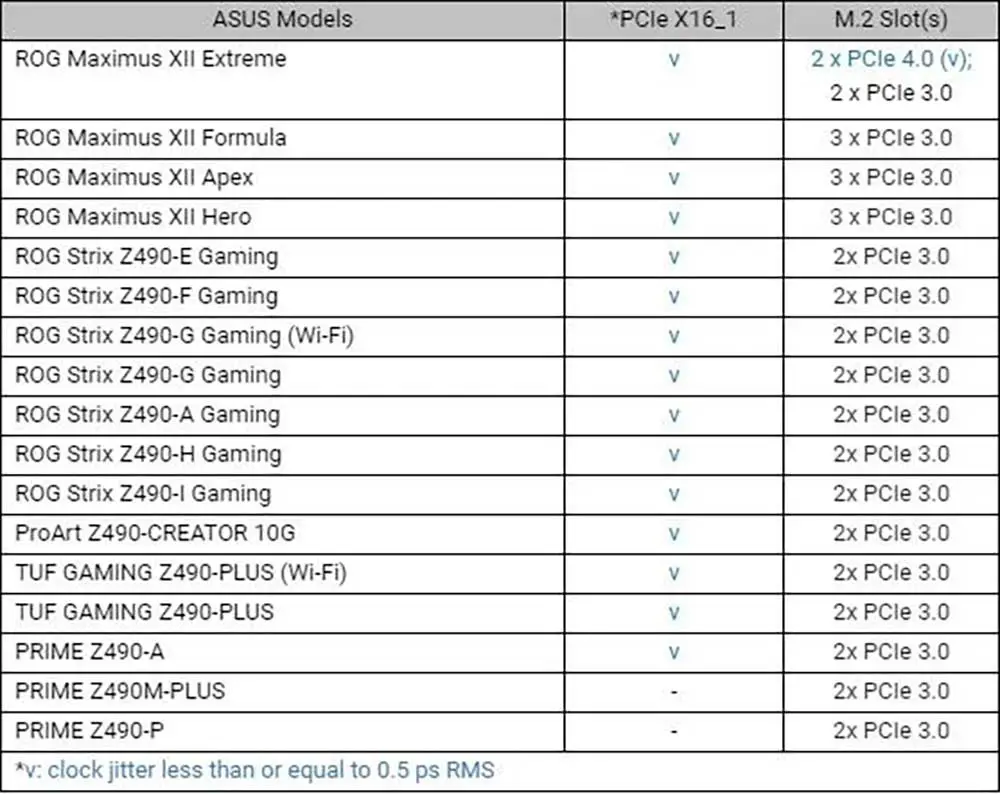
Based on the data we have on the tests carried out on the Z490 chipset by ASUS in the jitter measurement required by PCIe 4.0, with the exception of the two PRIME Z490M-PLUS motherboards and the Z490-P, most of the motherboards The docks support at least one PCIe 4.0 x16 slot, with only the ROG Maximus XII Extreme motherboard top of the range complying with the PCIe 4.0 verification in the two M.2 slots available.
Testing indicates partial compatibility for PCIe 4.0
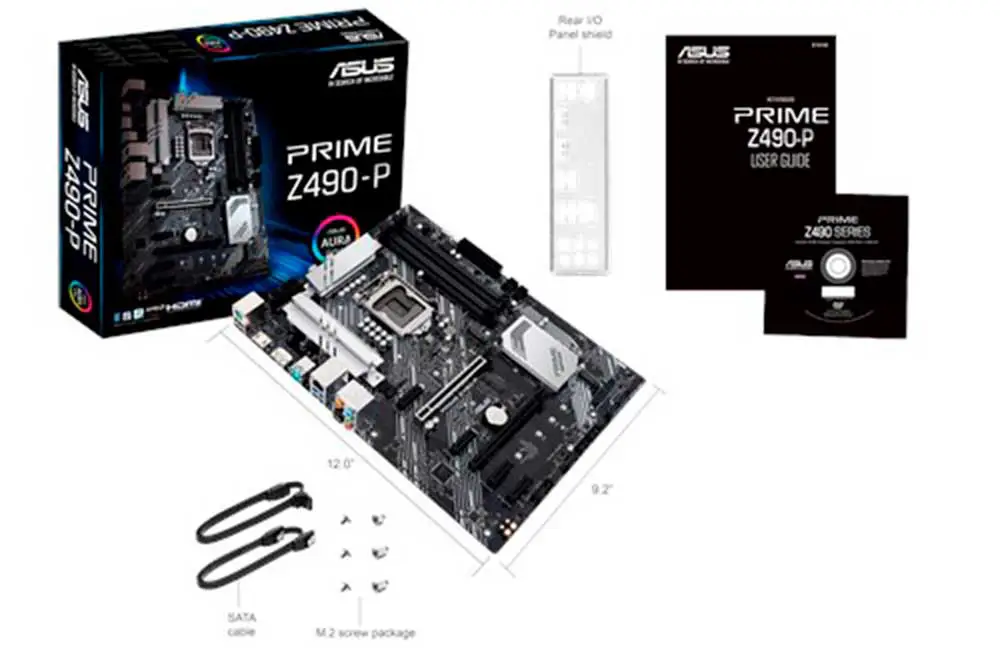
Most likely, manufacturers including ASUS can announce that their models are partially PCIe 4.0 compliant, but will not be able to announce full compatibility for most Z490 motherboards (although some top-of-the-range motherboards may, but never natively).
What is still unknown today is whether Intel, in the design of its new Comet Lake-S, has fully covered the functionality of PCIe 4.0 or whether it is because its design does not support it, since it is a partial rehash of the previous generation that no longer supported it.
The Comet Lake-S from Intel have already suffered two delays and in one of them Intel had announced that they had included PCIe 4.0, but that it would not be enabled by default either on the motherboards or on the processor itself. The last thing that was known is that neither the motherboards nor the processors were able to meet the standards to comply with the jitter allowed in the PCIe 4.0 interface, but given this data, it is revealed that it is possible that if we have a support, at less partial.
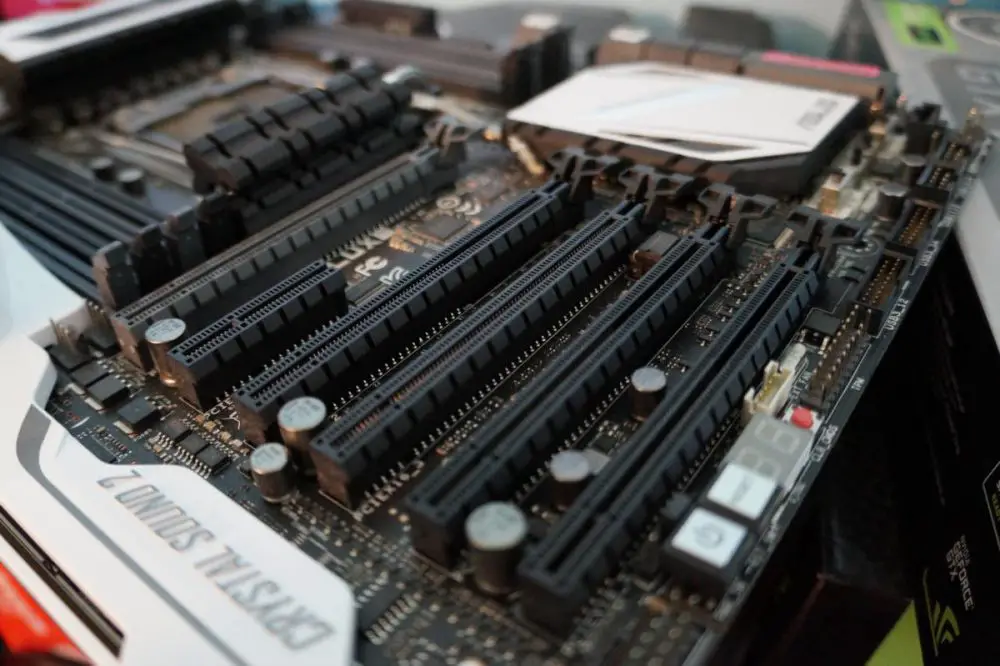
In short, and with the data that we currently handle, the new LGA 1200 socket and the high-end Z490 chipset may offer partial or full support for PCIe 4.0 but they will not offer it natively. This means that it will be difficult for us to see this support for graphics cards but probably for storage devices, although that is true, using third-party controllers implemented by the board manufacturers and that will have nothing to do with Intel.
Likewise, the medium ranges could be able to offer it for graphics and not for storage, and finally the lowest range for now would be left with support for PCIe 3.0. At the official ASUS website, for the moment, there is still no trace of support or PCIe 4.0 compatibility for the Z490 series.





